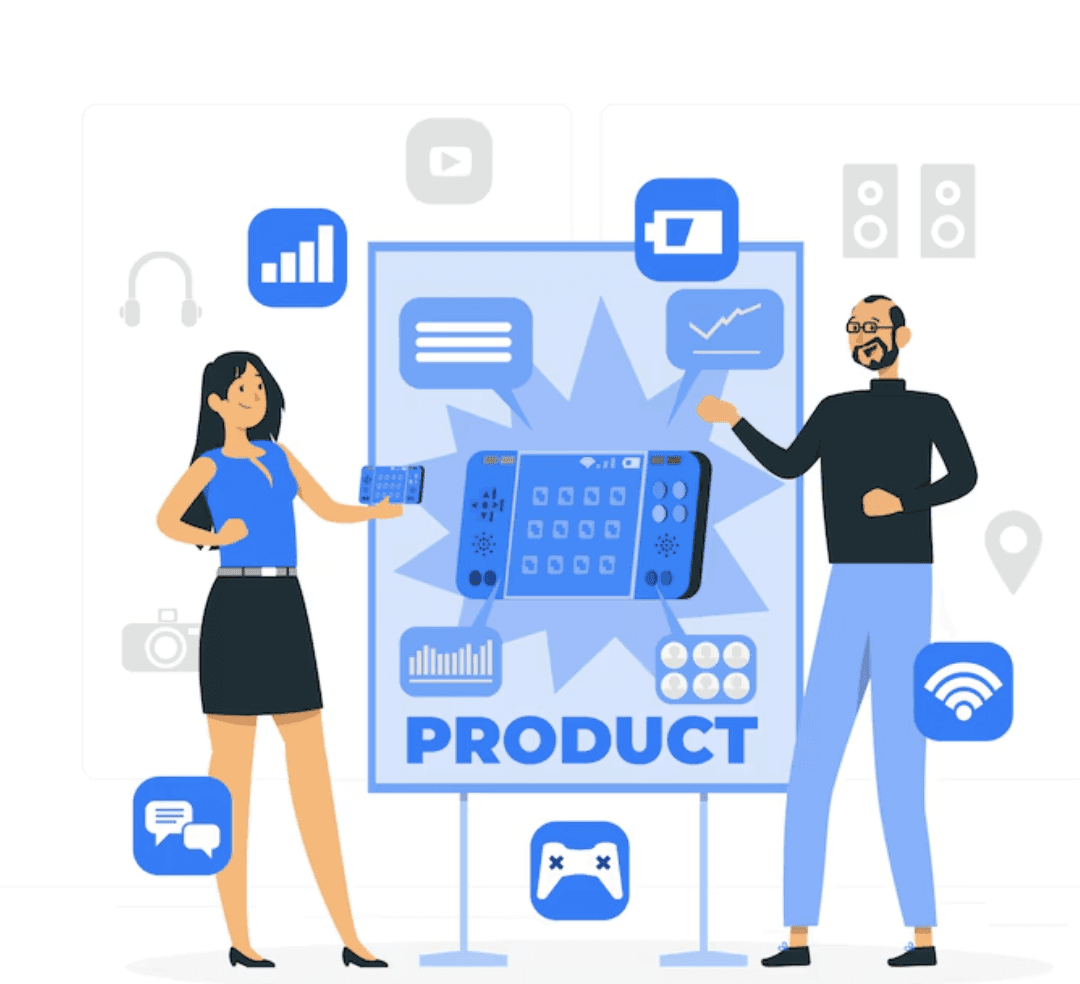
Product Management is the art of balancing strategy, customer needs, and innovation. As a Product Manager, you spot opportunities, turn ideas into action, and rally teams to success. This guide equips you with 60 key interview questions and examples to help you stand out. Plus, Sensei AI can simplify your prep with real-time, personalized support. Get ready to ace your interview!

General Product Manager Questions
Interviewers often begin with general questions that aim to uncover your motivation for pursuing product management, your approach to challenges, and what sets you apart. These questions provide an excellent opportunity to connect your past experiences to the role, demonstrating your passion for product management and showcasing your unique skills in action. Here are ten common questions to prepare for:
Why do you want to be a Product Manager?
What excites you most about product management?
Describe a product you admire and explain why.
How do you approach learning about a new market or technology?
What role does customer feedback play in your decision-making?
Describe a time when you successfully influenced a team without direct authority.
How do you prioritize tasks when managing multiple projects?
Tell me about a time you failed and what you learned from it.
How do you stay motivated during challenging projects?
What skills do you bring to the role that you believe are essential for product management?
Tips & Sample Responses:
When answering questions about motivation and skills, try to connect your personal drive to the broader impact of a Product Manager. For example, a response to "Why do you want to be a Product Manager?" might be:
“I’m drawn to product management because I love the challenge of turning ideas into valuable experiences for users. I enjoy working at the crossroads of technology and business strategy, which allows me to make a meaningful impact on both the product and the team.”
To answer, “Describe a product you admire and explain why,” you could say:
“I admire how [Product] has simplified [specific task] for its users. The design is intuitive, and the features clearly address user needs without adding unnecessary complexity. It’s a great example of balancing innovation with user-centered design, which is a principle I’d love to apply in this role.”
These questions give you the chance to demonstrate critical thinking, self-awareness, and alignment with the field, helping interviewers gauge your fit for the role and team.
Company-Specific Questions
A strong understanding of the company and its products is invaluable in the interview process. Tailoring your answers based on the company's product lineup, values, and competitive landscape shows you’re not only prepared but also genuinely interested in helping the company succeed. Here are 10 common questions that require company-specific knowledge:
What would you change about our product and why?
Who do you see as our top competitors, and how would you position our product against them?
How do you view our brand in the current market?
What features of our product do you think are most valuable to customers?
How would you improve our product to increase customer engagement?
What recent industry trends could impact our product’s success?
How does our product align with your values or goals?
If you joined our team, what would be your top priorities for our product?
What do you see as the biggest challenge in positioning our product in the market?
How would you describe our target audience, and how do you think we could serve them better?
Tips & Example Answers:
When responding to these questions, try to reflect the company’s mission and values. For instance, if asked, “What would you change about our product and why?” you might answer:
"I’d focus on refining [specific features] to enhance the user experience. Based on customer feedback, this feature is popular but could be optimized to further simplify users’ workflows, which aligns with your brand’s commitment to user-centered design.”
Or, if asked, “Who do you see as our top competitors, and how would you position our product?” you might say:
“I believe [Competitor X] and [Competitor Y] are significant players due to [specific reasons]. However, our product’s unique strengths in [feature or service] give us a competitive edge. By emphasizing these areas, we can differentiate ourselves and appeal strongly to our target audience.”
Researching the company’s products, competitors, and values can make your answers more relevant and insightful. For example, if asked about product improvements, you might focus on customer needs or market positioning. Sensei AI can help personalize your responses to reflect the company’s goals, showing you’re ready to make an impact from day one.
Technical and Analytical Questions

These questions assess your ability to apply technical knowledge and analytical skills to product management. Interviewers will be looking for candidates who can interpret data, make informed decisions, and use metrics to guide product development and performance improvement. Here are 10 common technical and analytical questions:
How do you determine the success of a product feature?
What metrics do you use to gauge product performance?
Describe a time when data-driven insights influenced your product decisions.
What role does A/B testing play in your product development process?
How do you prioritize features based on customer feedback and analytics?
Can you explain how you’ve used customer segmentation data to inform a product strategy?
What are the most important KPIs for tracking the health of a product?
How do you measure product-market fit?
Tell me about a time when you improved a product using user data.
What tools do you use to analyze product data and why?
Tips & Sample Responses:
For technical and analytical questions, it's essential to explain how you leverage data and metrics to make decisions that align with business goals. Focus on specific KPIs or tools you’ve used and show how these decisions have impacted product success.
For example, if asked, “How do you determine the success of a product feature?” you might answer:
“When determining the success of a product feature, I track user engagement metrics such as DAU (Daily Active Users) and feature adoption rates. For example, when we launched a new recommendation engine, I monitored how many users interacted with it and whether it increased overall retention. The feature was considered successful when we saw a significant uptick in user engagement and retention metrics, which confirmed that it met user needs.”
Or, if asked, “What metrics do you use to gauge product performance?” you might say:
“I primarily use KPIs like Net Promoter Score (NPS), customer retention rates, and conversion rates to measure product performance. For instance, when we rolled out a new onboarding process for our app, I focused on how quickly users progressed through the setup steps and how many completed the process. A higher conversion rate and improved NPS score indicated that the new onboarding process was successful in meeting user expectations.”
Another example could be if asked, “Describe a time when data-driven insights influenced your product decisions.”
“Once, we were facing a high churn rate after a major product update. By analyzing user feedback and usage data, we discovered that a new feature was unintuitive for our users. We quickly iterated on the design, simplifying the interface, and within a few weeks, the churn rate dropped significantly. This data-driven approach allowed us to identify and address the pain point effectively.”
Providing clear, metrics-based answers demonstrates your analytical capabilities and decision-making process, which are crucial for a Product Manager. This approach shows you can translate data insights into actionable steps that drive product success, ensuring that product decisions are well-grounded in data.
Behavioral Questions
Behavioral questions help interviewers assess your interpersonal skills, problem-solving abilities, and adaptability. Using the STAR method (Situation, Task, Action, Result) can ensure structured and impactful responses. Here are 10 common behavioral questions:
Tell me about a time you influenced a decision without formal authority.
Describe a time when you had to prioritize conflicting tasks.
Explain a challenging situation you faced on a project and how you handled it.
Tell me about a time you navigated a disagreement with a team member.
Share an instance when you worked under a tight deadline.
Describe a time you took a calculated risk and its outcome.
How did you handle a sudden change in project scope?
Describe a situation where you had to make a quick decision.
Tell me about a time you motivated a struggling team.
Explain a time when you exceeded expectations for a project or goal.
Tips & Sample Answers:
When responding, keep your answers focused on demonstrating the desired skill or trait. Here are some example responses:
For instance, if asked, “Tell me about a time you influenced a decision without formal authority,” you might answer:
“In my last role, I identified an improvement opportunity in our onboarding process. I didn’t directly manage the team, but after gathering feedback from new hires and analyzing onboarding metrics, I shared my findings with the HR team. My data-driven approach helped gain their support, leading to changes that improved new hire satisfaction scores.”
Or, if asked, “Describe a time when you had to prioritize conflicting tasks,” you could say:
“During a product launch, I had both user testing and marketing preparations to manage. I assessed which tasks had the highest immediate impact, coordinated with teams, and delegated parts of the testing process, ensuring we met the launch timeline without compromising quality.”
Behavioral questions give interviewers a clear view of your communication style, resilience, and ability to collaborate—all essential for success in a Product Manager role. Sensei AI can support you for behavioral questions, helping you refine answers to highlight key strengths like adaptability and teamwork.
Product Strategy and Vision Questions

Product strategy and vision questions assess your ability to craft long-term plans that align with market needs, customers, and business goals. They reveal how you prioritize, anticipate trends, and balance innovation with practicality. Here are 10 common questions:
How do you decide which features to prioritize?
Describe your process for setting a product roadmap.
How do you ensure that a product stays aligned with market trends?
What role does customer feedback play in shaping a product strategy?
How do you balance innovation with the need for stability in a product?
Can you give an example of when you adjusted a product strategy based on market feedback?
How do you assess the competitive landscape when developing a product strategy?
How do you measure the success of a product strategy?
Describe a time when you had to pivot a product strategy due to unforeseen market changes.
How do you ensure alignment between product, marketing, and sales teams when executing a strategy?
Tips & Sample Answers:
When responding to these questions, focus on demonstrating your ability to align strategic vision with market needs and resource constraints. Here are some example responses:
For instance, if asked, “How do you decide which features to prioritize?” you might answer:
"I prioritize features by considering customer pain points, business objectives, and potential return on investment. I work closely with cross-functional teams to evaluate feasibility and impact, ensuring we address the most critical needs first, even with limited resources."
Or, if asked, “Describe your process for setting a product roadmap,” you could say:
"I begin by gathering insights from customers, internal stakeholders, and market trends. I then analyze the data to create a clear product vision and set milestones. I use prioritization frameworks like RICE (Reach, Impact, Confidence, Effort) to ensure we’re focusing on the most valuable initiatives."
Strategic questions reveal your long-term vision, market awareness, and ability to execute plans that adapt to changes. Your responses will highlight your capacity for strategic thinking and prioritization, which are essential skills for a Product Manager role.
User-Centric Questions

User-centric questions assess your ability to prioritize user needs and incorporate their feedback into product decisions. These questions help interviewers understand your focus on enhancing user satisfaction and improving the user experience. Here are 10 common user-centric questions:
How do you incorporate user feedback into product development?
Describe a time you resolved a user pain point.
What’s your approach to improving user experience?
How do you handle conflicting user feedback?
Tell me about a time when you made a product decision that significantly improved user satisfaction.
How do you measure user satisfaction and product usability?
How do you prioritize user needs when there are limited resources?
Can you describe a time when user feedback led to a product pivot?
How do you ensure that all user personas are considered when designing a product?
What tools or methods do you use to track user behavior and insights?
Answering Tips & Examples:
When answering, focus on how you gather and use user insights effectively.
For example, if asked, “How do you incorporate user feedback into product development?” you might say:
"I collect feedback through surveys, interviews, and data analytics, identifying trends and prioritizing actionable items with the product team. This approach ensures user concerns are addressed in a structured manner."
Or, if asked, “Describe a time you resolved a user pain point,” you could answer:
"Users reported difficulty in navigating our app’s search feature. After analyzing their feedback and testing solutions, we implemented a more intuitive design, reducing search-related complaints by 30%."
Effective responses to user-centric questions demonstrate your ability to empathize with users and translate feedback into product improvements.
Closing Thoughts
Preparing for diverse question types helps showcase your strategic thinking, user empathy, and problem-solving skills. Thoughtful, structured responses demonstrate your versatility and alignment with the company’s goals. With practice and tools like Sensei AI, you can deliver impactful answers that leave a lasting impression.
Try Sensei AI Now
FAQ
How should I prepare for a product manager interview?
Research the company and its products: Understand its target audience, competitors, and industry trends.
Review your past experiences: Be ready to share specific examples using the STAR method.
Practice common interview questions: Focus on product strategy, technical skills, and behavioral scenarios.
Brush up on relevant frameworks: Familiarize yourself with prioritization tools like RICE, user-centered design principles, and agile methodologies.
Stay current with industry trends: Be prepared to discuss recent innovations or shifts in the market.
What are the top 3 skills for a product manager?
Communication and Collaboration: Effectively align cross-functional teams and stakeholders.
Strategic Thinking: Define and prioritize product goals that align with business objectives.
Analytical Skills: Use data to make informed decisions and measure product success.
What are the top 3 responsibilities of a product manager?
Defining the Product Vision and Roadmap: Create a strategic plan to guide development.
Prioritizing Features: Balance user needs, business goals, and technical feasibility.
Facilitating Cross-Team Collaboration: Align engineering, marketing, and design teams to ensure smooth execution.
What is the key question of a product manager?
"How can we deliver the most value to our users while achieving business goals?"
This reflects the Product Manager’s responsibility to balance user satisfaction with organizational success.

Emi Wang
Emi Wang is the founder and CEO of Sensei AI, an AI interview copilot that enhances job seekers' preparation with real-time feedback. Emi has developed AI-driven tools focused on resume optimization, interview preparation, and career advice, empowering candidates to succeed in competitive job markets.
Learn More
Tutorial Series: Introducing Our New Chrome Extension Listener
7 Common Interview Mistakes and How to Avoid Them
How to Introduce Yourself in an Interview (With Tips & Examples)
Online Interview Preparation: What You Really Need to Know
Cross-Cultural Interview Tips to Land Global Jobs
Enhance Your Professional Skills: A Guide to Thriving in 2025
The Perfect Resume Format: Proven Tips to Get Noticed and Get Hired (2025 Guide)
Why Your Resume Keeps Getting Ghosted (And How to Fix It for 2025 ATS)
Why You’re Failing Interviews (And How to Finally Get It Right)
Master LinkedIn Endorsements: Boost Your Profile & Attract Recruiters
Sensei AI
hi@senseicopilot.com
